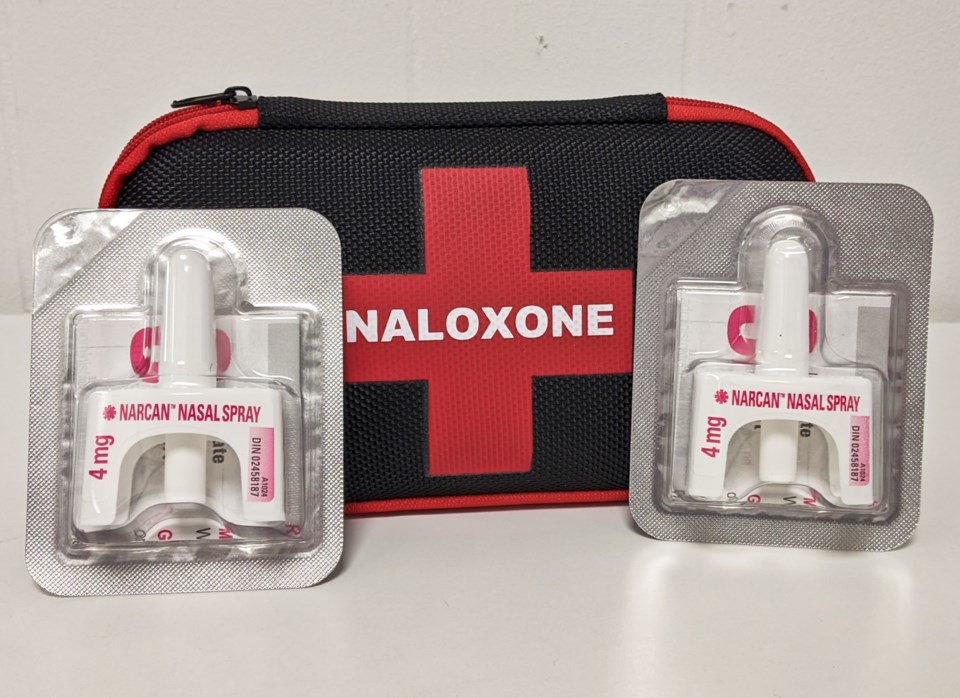Ahead of the closure of consumption and treatment services (CTS) in Guelph, there are training opportunities for how to use Naloxone being offered since more drug poisonings in public are possible.
On Dec. 10, there will be a de-escalation, anti-stigma and Naloxone training at the main library at 100 Norfolk St. from 11 a.m. to 12:30 p.m. The training provided by Welcoming Streets, is free and open to anyone. To sign up in advance call 519-838-6737 or email [email protected]
A version of the training has been provided before but more specific training is being developed to address the risks related to the CTS closure.
The closure is expected for the end of March and it was announced by the province in August with nine sites closing, including the one at the Guelph Community Health Centre. Services like supervised safe consumption, safe supply and needle exchange on-site are to stop.
“We know there's going to be more drug poisoning happening out in public spaces,” said Melissa Kwiatkowski, Guelph Community Health Centre CEO.
"The training is part of mitigating the risk so local businesses and social service agencies know what to expect when CTS closes and then be equipped with the training to respond appropriately and manage drug poisonings that are going to be out in the community,” said Kwiatkowski.
When asked how to brace for something like this she said didn’t know how to answer since this is unprecedented for Guelph CHC. Its working with community partners to coordinate a risk mitigation plan and training is a big part of it.
Without the CTS program the responsibility will be left to surrounding businesses and individuals to manage so she wants everyone to be equipped for it.
She doesn’t think everyone understands the complexity of the issues facing the Guelph community and others across the country. “I think the average person truly believes that if this site closes down, all the problems are going to go away,” she said, noting there are highly trained staff at Guelph CHC who work to support people in safe ways.
With the site closure, people in the community will be dealing with substance use and drug poisonings “and they're not going to have those highly trained staff at the ready right there. A lot of people don't know that,” said Kwiatkowski.
Staff do perimeter checks around the building to make sure improperly discarded supplies are disposed of safely. CTS is a contribution to the community and “...it's unfortunate we might not find out just how important it is until after the site closes,” she said.
Most of the behaviours of people seen downtown are a result of trauma and trauma-informed responses are needed in those situations. For those who can’t make it to the training on Tuesday, Kwiatkowski recommended training about adverse childhood experiences through the Community Resilience Coalition Guelph & Wellington. It’s a group dedicated to taking action to prevent and reduce the impacts of adverse childhood experiences.
There are plans for follow-up training opportunities and Guelph CHC is working with the Wellington-Guelph Drug Strategy on it. Welcoming Streets also provides training for businesses.
